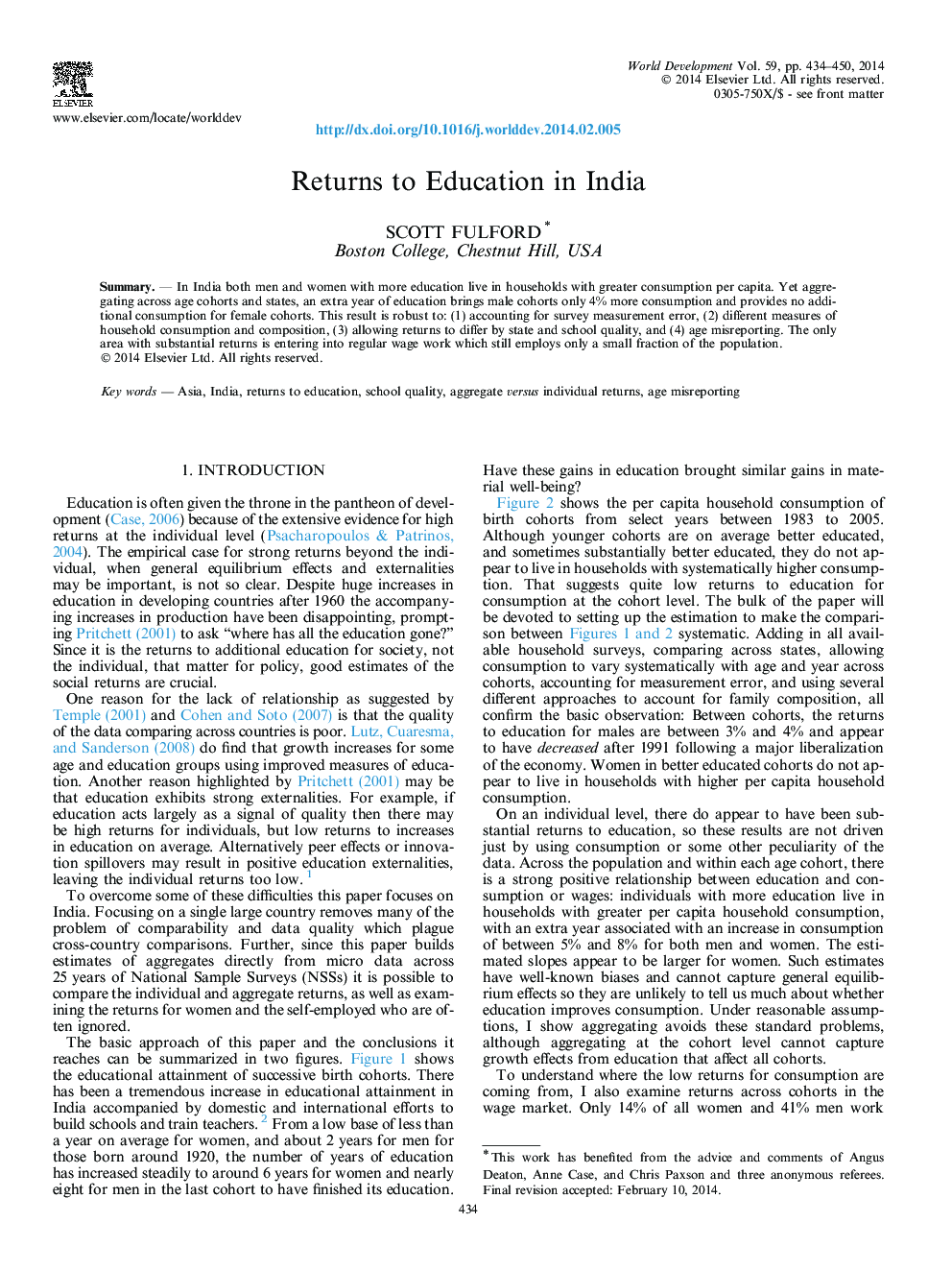| Article ID | Journal | Published Year | Pages | File Type |
|---|---|---|---|---|
| 7395204 | World Development | 2014 | 17 Pages |
Abstract
In India both men and women with more education live in households with greater consumption per capita. Yet aggregating across age cohorts and states, an extra year of education brings male cohorts only 4% more consumption and provides no additional consumption for female cohorts. This result is robust to: (1) accounting for survey measurement error, (2) different measures of household consumption and composition, (3) allowing returns to differ by state and school quality, and (4) age misreporting. The only area with substantial returns is entering into regular wage work which still employs only a small fraction of the population.
Related Topics
Social Sciences and Humanities
Economics, Econometrics and Finance
Economics and Econometrics
Authors
Scott Fulford,
